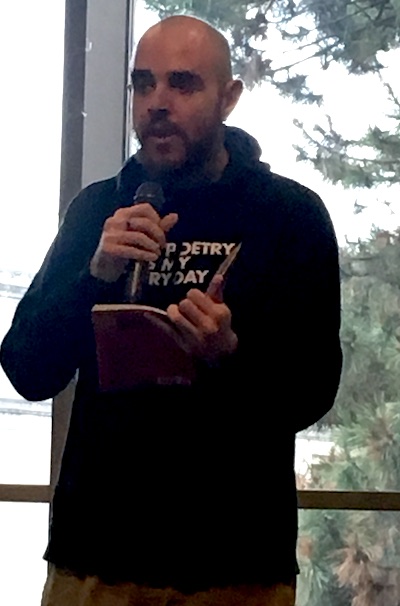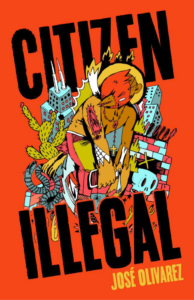 If you’re one of the 98-99 percent of U.S. residents who isn’t a full-blooded Native American, immigration is your family story. You might be the first generation in the U.S., or you might be the 10th; but somewhere back in your lineage you’ll find immigrants.
If you’re one of the 98-99 percent of U.S. residents who isn’t a full-blooded Native American, immigration is your family story. You might be the first generation in the U.S., or you might be the 10th; but somewhere back in your lineage you’ll find immigrants.
And chances are, you’ll find immigrants who were belittled, shamed and made to feel like outsiders. Even if your ancestors were among the first pilgrims, and might not have faced that on this new continent, think about why they came here. They were belittled, shamed and made to feel like outsiders elsewhere.
Poet José Olivarez is a first-generation Mexican-American, and shame and the quest to belong are very personal themes to him. They run throughout his debut book of poems, Citizen Illegal. I’ve just posted a review of Citizen Illegal at Escape Into Life, and you can read a sampling of the poems there and see why I loved this book. You can also read and listen to a couple of his poems on Poets.org, including this one from Citizen Illegal.:
And here’s an interesting interview on the Poetry Foundation’s website.
I got to see/hear Olivarez speak and read from the book during a recent event at my local library, and I was struck by how humble and happy and grateful he is. Also funny. He spoke about his book and his life, and also about libraries. It should never surprise anyone to find that a reader or a writer is a fan of libraries. They’re like the department stores of our dreams, but you don’t have to buy something to take it home. They’re more than that, though. They’re places of discovery—and of self-discovery. Olivarez noted that.
I was born in the Calumet City Public Library,” he said. “The library was where I learned to listen,” and to be present and attentive.
Themes of birth and rebirth appear in his poems, and they recurred in his talk as well. “I was born again when I went to kindergarten,” where he learned that it was not acceptable to speak Spanish. Enter shame, stage right.
Poetry and writing eventually became a way for him to reclai m his own voice, separate it from the shame that it had taken on because it set him apart from others who did not speak the same way as he.
m his own voice, separate it from the shame that it had taken on because it set him apart from others who did not speak the same way as he.
Funny story, that. “I only went to see spoken word” to get out of chemistry class, he said. There, he found teens speaking about their own lives. There, he learned that he could write his own script—and that he could be a writer. “I began to see the ways in which I was already powerful. … Everyone had a story, and everyone could tell their story.”
Olivarez tells a beautiful, poignant and important story in Citizen Illegal. You should read it. And remember that it’s not just his story, and not just his family’s story. It’s your story, too.
